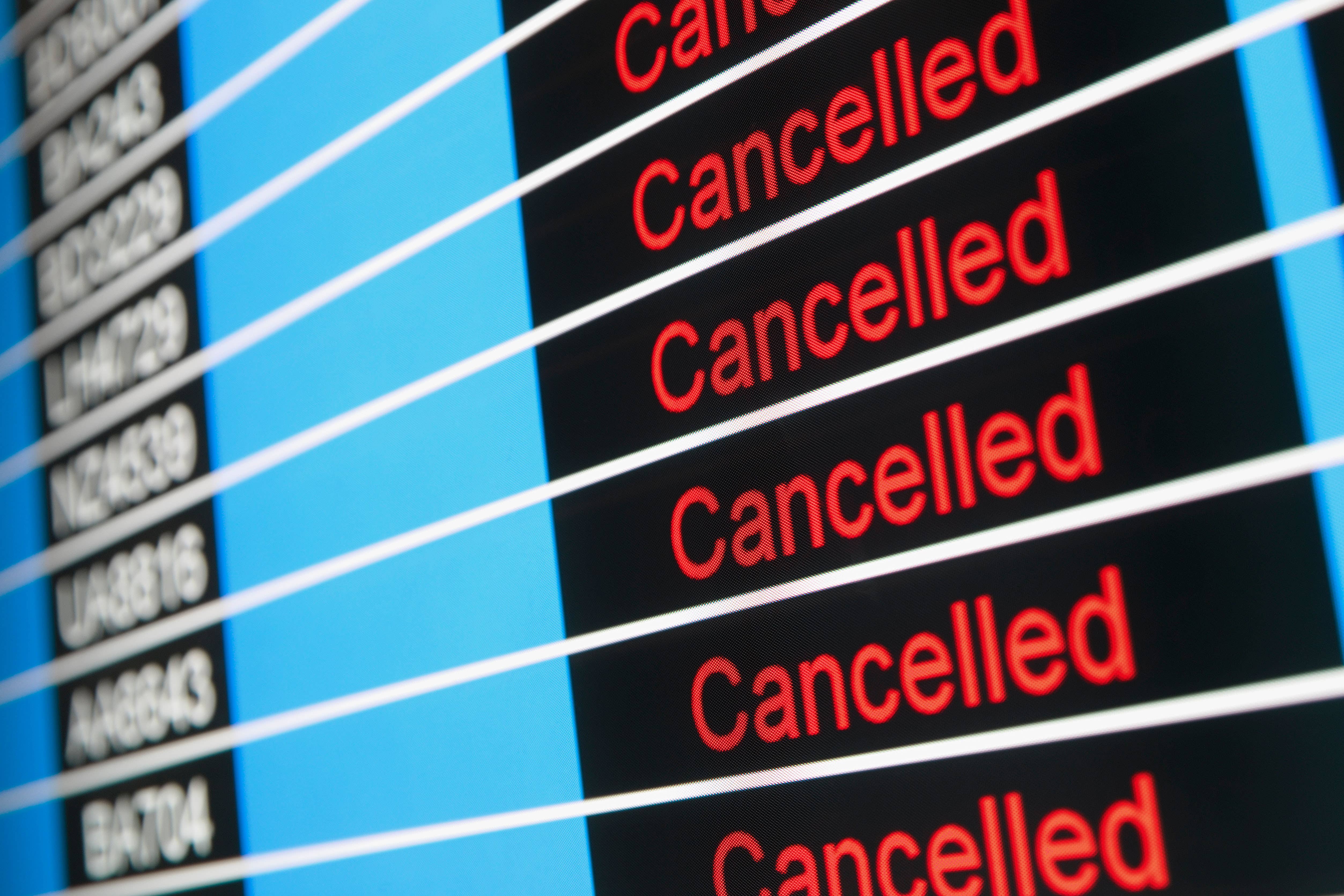Airlines allowed to get away with ‘unlawful’ behaviour for 20 years, Which? claims
The consumer group believes the Civil Aviation Authority ‘should be doing more’ to pursue court action against law-breaking carriers

Air travellers are being failed as no airlines have been fined due to regulatory action in 20 years despite numerous cases of “unlawful” behaviour, according to a consumer group.
Which? claimed the Civil Aviation Authority (CAA) “should be doing more” to pursue court action against law-breaking carriers, and “urgently needs stronger enforcement powers”.
The CAA was given the ability to apply to courts for enforcement orders against airlines in June 2003 but has used this power just once against a major carrier, in 2018, Which? said.
In that case, Ryanair escaped punishment following a three-year court battle after it agreed to pay passengers compensation for flights cancelled during a strike by pilots.
Which? noted that British Airways was fined $1.1 million (£900,000) by the Department of Transportation (DOT) in the US earlier this month over delays in issuing refunds for flights to and from the country which were cancelled during the coronavirus pandemic.
The DOT said it took action after receiving more than 1,200 complaints.
The lack of similar action in the UK – where many more passengers suffered delays to pay outs from the airline – is “an embarrassing indictment of weak passenger protections”, Which? said.
The consumer organisation’s analysis found more than 24,000 complaints about airlines relating to compensation were made to the CAA and the UK’s two alternative dispute resolution bodies in 2020.
In the UK, airlines are required to issue refunds for cancelled flights within seven days, but many consumers were forced to wait several months at the height of the virus crisis. Other nations whose regulators have fined airlines in recent years include Italy, Germany and Greece.
The Department for Transport (DfT) announced this week that it plans to give the CAA the power to fine airlines for breaches of consumer laws.
Which? called for this legislation to be included in the King’s Speech later this year.
That would demonstrate the Government’s intention to implement the change during the next parliamentary session.
Which? director of policy and advocacy, Rocio Concha, said: “The US government fining Britain’s flag carrier when our own authorities are powerless to do the same makes a mockery of aviation regulation in the UK, which has been failing travellers for 20 years.
“Passengers have repeatedly endured unfair and, in some cases, unlawful treatment by some airlines in recent years and meaningful action is long past due.
“The Government must act without delay and legislate to grant the CAA the powers it needs to issue hefty fines, and hold airlines to account when they break the law.
“Until it does so, UK travellers’ rights will be worth no more than the paper they are written on.”
CAA head of consumer Anna Bowles said: “We have regularly asked for stronger consumer enforcement powers, including the ability to impose fines on airlines.
“This would allow us to take faster action when appropriate and bring our powers in line with other sectoral regulators.”
A British Airways spokesman said: “Where a customer’s flight is cancelled, we always offer options including a full refund, rerouting or rebooking onto another service, including with other airlines. We always meet our legal obligations.”
Ryanair said in a statement: “Any Ryanair customers who are entitled to compensation due to staff strikes in 2018 – and who applied directly to Ryanair for compensation – have received compensation directly from Ryanair in line with EU261.”
Subscribe to Independent Premium to bookmark this article
Want to bookmark your favourite articles and stories to read or reference later? Start your Independent Premium subscription today.

Join our commenting forum
Join thought-provoking conversations, follow other Independent readers and see their replies